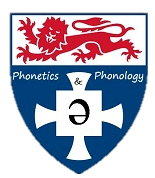Since September 2022, our research group has been conversing in rich discussion about various research projects occurring both within and outside our P&P team. Recent talks and presentations which have been discussed this semester include:
- SLS Seminar- Leveraging the Adaptable Speech Perception System for Dysarthria Remediation (Stephanie Borrie):
Carol-Ann McConnellogue gave a run through of Stephanie Borrie’s seminar for those members who could not make her presentation. Her work stresses the importance of taking the focus off speakers with speech disorders impacting their intelligibility and encouraging listeners to take more responsibility in communication. Stephanie found that listeners increased their perceptive skills of disordered speech through listening, transcribing, and imitating the disordered speech. - Working Memory and Speech Perception (Kai Alter):
Kai presented a study about working memory and lexical access. The study stressed the importance of memory capacity as (a) it correlates with language comprehension in children and geriatric populations; (b) it relates to performance on school achievement tasks; and (c) it offers opportunities for intervention in SLI and DLD, with the causes of DLD still under debate. This study used high-frequency, mono-syllabic concrete nouns recorded and presented at different paces to test participants’ maximal number of items to be recalled. Unlike previous research, it found that the medical number of memory capacity was 4 instead of 7 plus or minus 2. - Retainability and Sustainability of Phonetic Discrimination Ability of an English Vowel Contrast by German infants (Hiromasa Kotera):
Hiromasa presented his preliminary PhD research to the group. More information on his presentation can be found HERE. - Tianjin Mandarin Prosody (Cong Zhang):
Cong came to the group with some questions and ideas regarding a presentation she planned to present at talks in Cambridge and Edinburgh. Topics she brought to the group included: (a) Is there intonation in Chinese?; (b) tone systems of Standard Mandarin vs. Tianjin Mandarin; (c) floating boundary tone; (d) functional Principal Component analysis (fPCA); (e) chanted call tune in Tianjin Mandarin; and (f) how she can turn data from recorded TV shows into a scientific study. The group provided Cong with feedback and advice. - Nonword Learning Project (Rory Turnbull):
Rory presented his nonword learning project to the group so that he could receive general feedback on the overall idea, specific feedback on the pilot methodology, and recommendations of any literature and related topics. His main question posed to the group focused on why languages are the way they are, with a secondary idea questioning what are the things that influence language structure. More information on his presentation can be found HERE. - Correlates of Stress in Palestinian Arabic (Niamh Kelly):
Niamh discussed her study which is investigating the main indicators of lexical stress in Palestinian Arabic through acoustical analysis. After her presentation she opened the floor to members of the group for feedback and ideas on how to improve her methodology and analysis. More information on his presentation can be found HERE. - Pathological Speech Analysis (Shufei Duan):
Shufei is a visiting scholar of scalable group. She is currently Associate Professor in Taiyuan University of Technology in China, Shanxi Province. Shufei spoke to us about her project focusing on the classification of imbalanced data of Chinese dysarthria based on affective articulation. The project forms an emotional Chinese pronunciation dataset and an emotional pathological speech dataset and conducts research on the data processing of affective articulatory movement for Chinese dysarthria. Her aim is to develop an AI-assisted medical treatment and diagnosis so that diagnoses can be made remotely. Shufei’s work was of great interest to many group members and gave rise to several question-and-answer sessions. She has since attended some of our sessions, alongside her host Elly, in Semester 2 to learn about the research occurring within our group.
A new subgroup with the lovely name PIG (Prosody Interest Group) has been set up this year for our members who have an interest in prosody and intonation. This group will involve practice talks, feedback on research ideas, and discussion of relevant papers.
Some members of our group have submitted abstracts to the International Congress of Phonetic Sciences (ICPhS). We wish them the best of luck in their submissions.
We would also like to welcome three new members to our research group: Dr Cong Zhang, Niamh Kelly, and Hajar Moussa.

